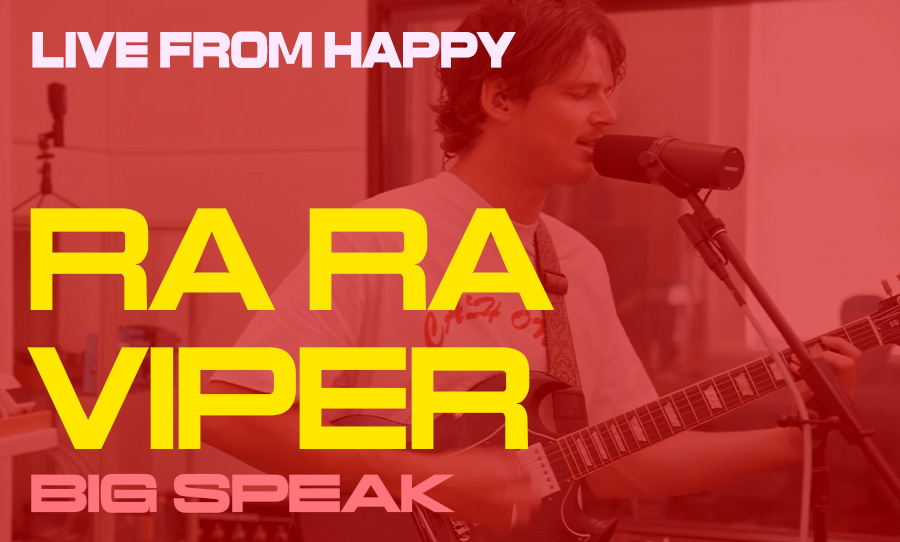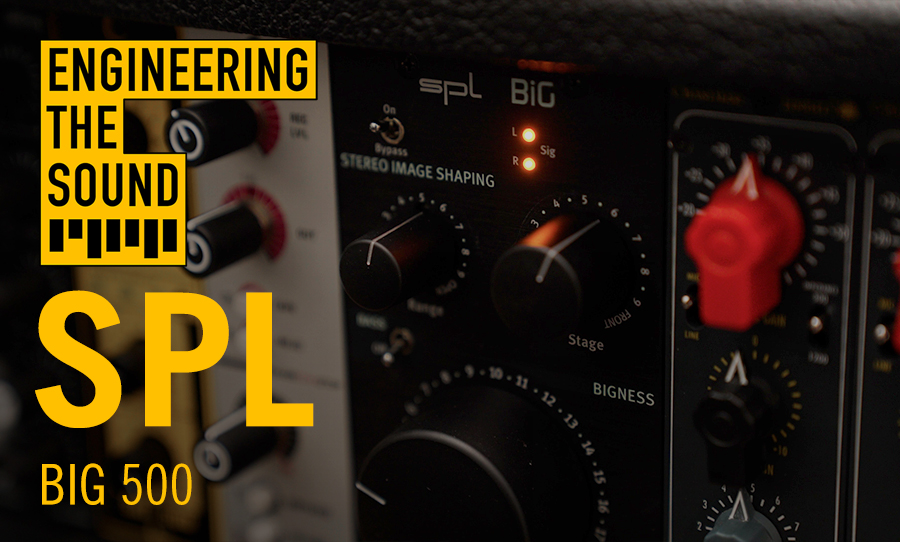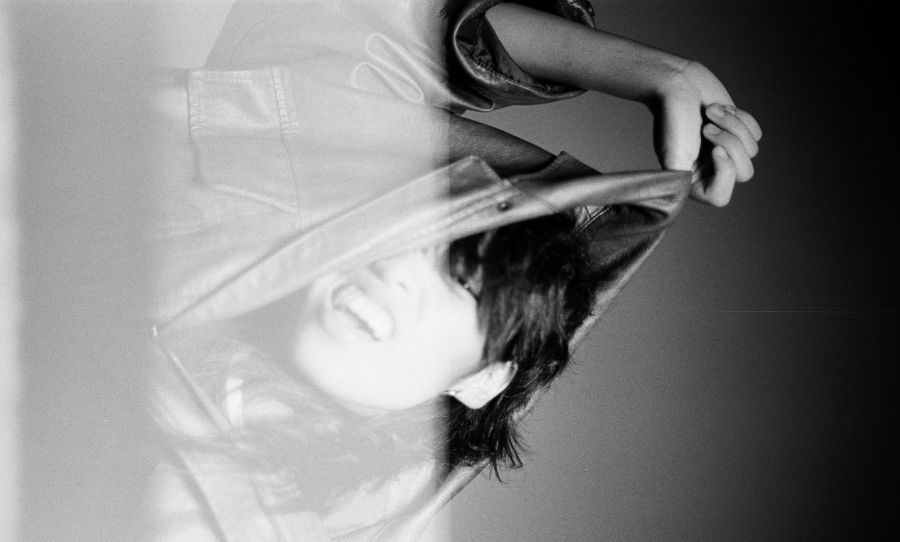Julia Stone remains a powerhouse within Australian music for her drive to push the boundaries further – and her latest LP, Sixty Summers is no different.
Sixty Summers brings storytelling to the forefront, with a sonic whirlwind of floor-fillers, and folk-ballads that inevitably settle in the dust – unnervingly powerful, and channelled precisely.
So, to celebrate the official release of her most daring project yet, Happy caught up with Julia Stone to chat about the intricacies of storytelling, authentic experience, and living through Sixty Summers.
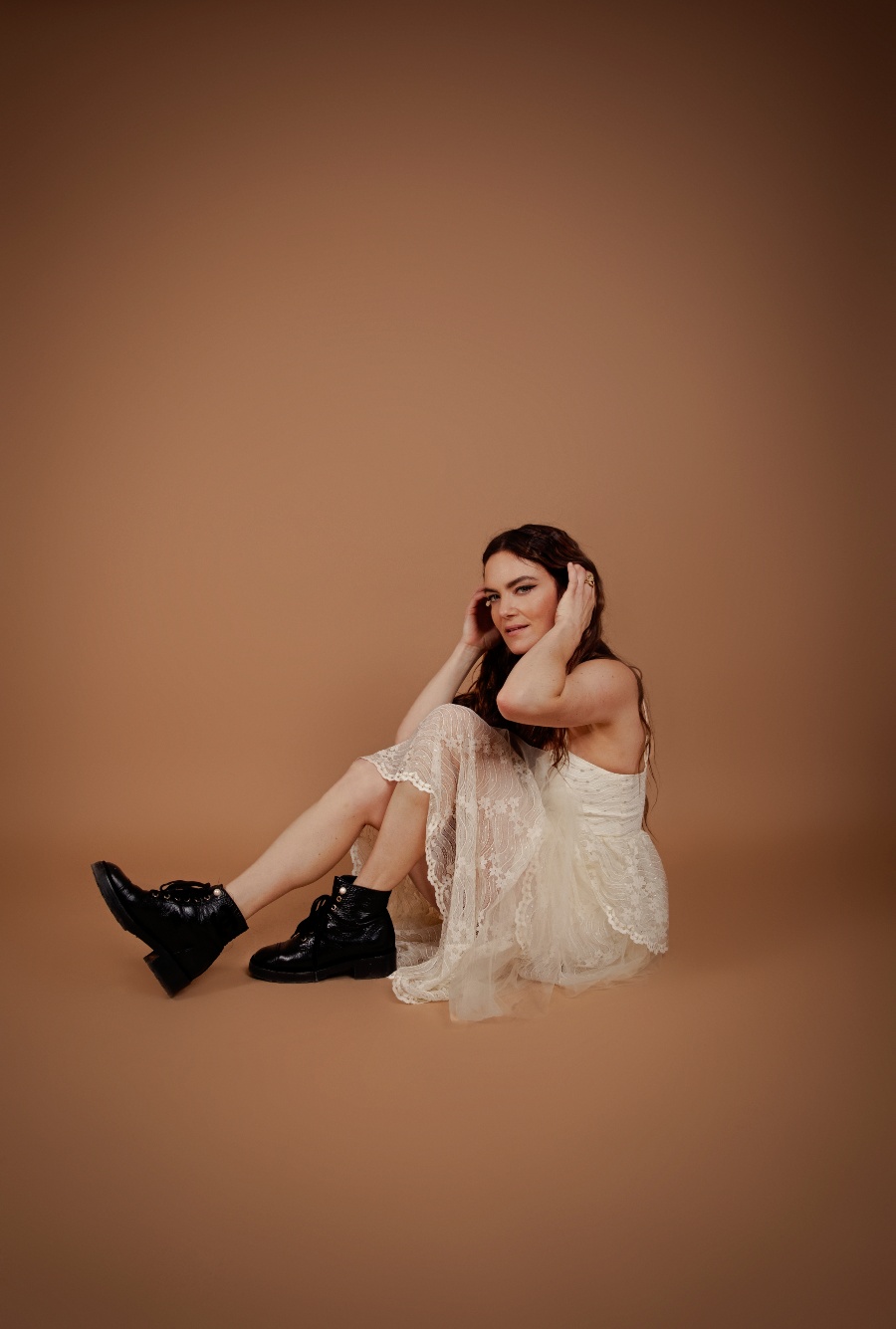
HAPPY: Welcome, and happy release day, Julia!
JULIA: Thank you, thank you.
HAPPY: It’s the first solo record you’ve released since 2012, so how does it feel to get back out there?
JULIA: It feels good, and I guess it feels a lot like a first release for me, because it’s so different, and it was such a different recording process than anything I’ve done before. I feel like – I don’t know. I feel like I felt when I put out the first record I ever put out, so it’s really exciting and really overwhelming, and like, ‘This is the direction I want to be going in.’
HAPPY: Yeah, yeah, because it’s such a shift in style.
JULIA: Yeah.
HAPPY: It’s like a fresh start.
JULIA: It really is. A whole different way of songwriting, a whole different way of recording. So all of those differences made this feel like – I don’t know – I guess a super emotional moment, because it’s been something I’ve wanted to do for a long time.
HAPPY: That’s awesome. Was there a moment, or a person, or maybe even a song that inspired that change to start recording and put out a new direction?
JULIA: Yeah. When I was on tour with my brother, Angus, we were touring through Europe, touring Snow, which is the last record we made together, and I always felt like, at the end of the tour, I didn’t really know where to go. You know, it’s like my life is touring. I live on a bus, and I live with these fifteen blokes, who, you know – we all sleep on this bus, and we all travel round, and we would get off the bus and play a concert. So when that would finish after a couple of months, everyone would have a month off, or we’d have a couple of weeks off before the next one starts, I’d sort of feel lost, you know. And I guess I didn’t really feel like I particularly belong anywhere, except for with Thomas. And I had this feeling, when I finished, that that was the place that I wanted to be. And so, back in 2015 was the beginning of what became us starting a kind of ritual, I guess, between tours. I’d fly to New York, and I’d get my suitcases from the baggage. You know, I’d tell Thomas when I was coming, and I’d go straight to his studio – he’s always in his studio.
HAPPY: Yeah.
JULIA: And if he hadn’t – if it was really last minute – and he was working with someone else, I’d just come and sit in on the session he was working on. And if he had time, he’d make space so that we could just hang out. So initially, I was just doing that to feel like I had somewhere to go, and to be with him. And then eventually, part of that time was we started writing together, and it really started to feel like – I guess – that Thomas was celebrating parts of me that I wasn’t showing anyone else. And as he was celebrating those things, I started to feel like, ‘Oh, the music that I’m making in this space feels really good, and really exciting.’ But I didn’t think I was going to make a record. I just thought, ‘I love doing this!’ So I kept doing it, and we kept writing, and I kept spending more time with him, making these songs, and eventually, we had these sort of thirty songs, that we had worked on in these incremental periods of time. And then he said to me – and I’d finished touring with my brother – and he said, you know, ‘Is it time to start putting some of these out?’ And I was like, ‘Oooh, maybe…’ And I said, ‘What would we do though? Which songs? They’re so different – they’re all so different.’ And he was like, ‘What about this?’ And I was like, ‘What about this?’ And we couldn’t kind of figure out what it was – this body of work. And he said, ‘Why don’t we ask Annie to come in and have a listen?’ And she just started getting into production – Annie Clark, who also goes by the name St. Vincent…
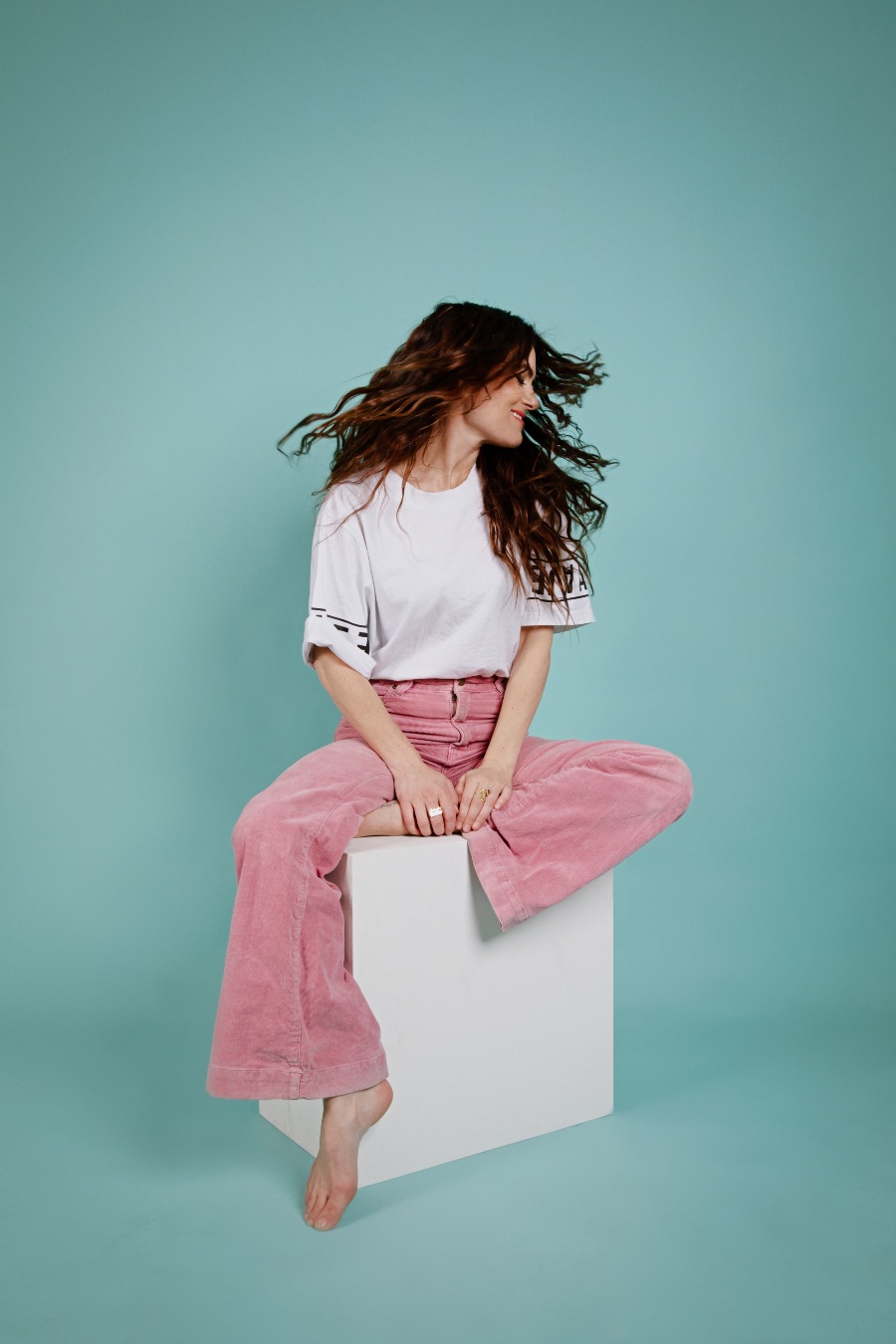
HAPPY: St. Vincent, yeah.
JULIA: So he said, ‘Why don’t we ask her to come in and have a listen, and see if she will come in as a producer?’ And of course, I love Annie, and I thought that would be a great idea. And she came in, and listened to the songs, and was like, ‘OK, I can make this into a record.’ So it was all those moments, I guess – a long-winded way of saying there was a lot of different moments, where I felt myself becoming more and more free.
HAPPY: Yeah, that’s a really good answer. Like an organic process – like of six years.
JULIA: Yeah, yeah.
HAPPY: So cool.
JULIA: I’m a slow learner.
HAPPY: So I also wanted to ask, in your past work, it sounded like you were sort of working through some relationship repercussions. And on Sixty Summers, it feels more like you’re stepping forward, and reclaiming your narrative. What were some of the key feelings you felt were coming out of the new record that you wanted to portray, that was different to the 2010 and 2012 records?
JULIA: Yeah, I guess there was probably an element of realisation that every circumstance that you find yourself in isn’t something that you’re the victim of. It’s something that you’re just in, and often, you don’t have a choice. It’s just life happens, and I think in the past, I felt that was unfair that traumatic things happen, or you lose people, or people die, and you have to go through this pain and this suffering, but actually, how you experience it is up to you. And so I think, a lot of what I was writing about making this record was a. being able to say what I want out of life and out of relationships – not just intimate relationships, but relationships with myself and family – but also accepting that there are some things you can’t change. Accepting that there are some moments in life where things are just shitty, and it can be a lot easier if you just accept that that’s how it is.
HAPPY: You took it in your stride.
JULIA: Yeah. You just have to sort of – I feel like the resistance to the shittiness is the thing that causes the pain. Do you know what I mean?
HAPPY: Yeah, wow. That’s interesting.
JULIA: So yeah, I guess acceptance is the underlying thing that I was trying to articulate. But when I say trying to articulate, I think it was a slow feeling as I was writing. I was writing much more slowly, and just writing what was coming out of my head, and I wasn’t judging it. So that was also part of the writing process. I know how to write songs, so you just write it.
HAPPY: Write it, yeah. One of the songs that felt so confident and powerful was the Fire in Me single. And I have to ask, is that someone panting in the post-chorus breakdown?
JULIA: Yeah! (Pants)
HAPPY: Yeah, that thing.
JULIA: Yeah, I think that’s me panting.
HAPPY: Nice. I love that. It kind of reminded me of that Kanye one that’s like (pants). You know, that black skinhead one.
JULIA: Yeah, yeah.
HAPPY: Anyway, I just…
JULIA: That’s a huge compliment, thank you.
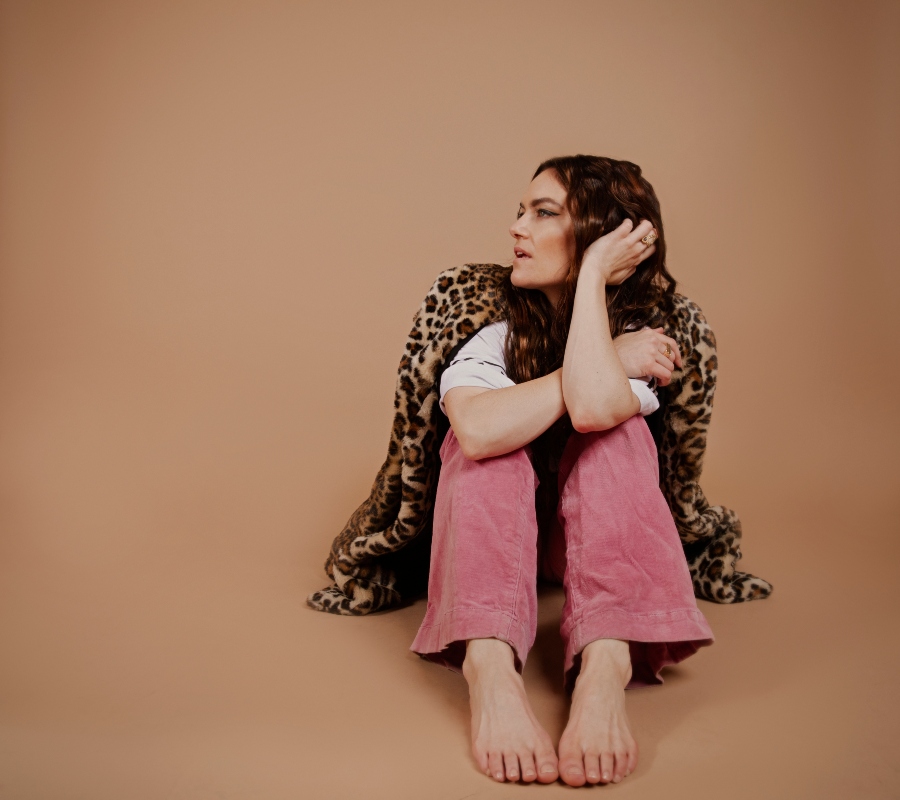
HAPPY: Also, you probably saw this question coming. Touching on the genre change, of course – from more indie-folk to kind of like late-night pop dance. What inspired the switch, would you say?
JULIA: I grew up loving clubbing, and dancing, and I feel like even when Angus and I were playing these – kind of back in the day – songs like Chateau and it was a bit more dance-y at our shows, but even back when we were doing very, very folk music, songs like Mango Tree and All of Me, those moments, I’d come off stage feeling so connected and happy with everyone, but I’d always feel like I wanted to go out dancing. And for me, dancing – even more so than actually making music – felt like a place of freedom, and a way to express that is completely untouchable. And being at a night club or a house party or a dance party, and there’s music, and having that sort of ‘I don’t care what I look like, I just love feeling my body move.’ I think that was always in me, and I had to go through all of these different experiences, and the path with my brother was the one that made the most sense at the time. It was right in front of us, and people liked it, and we kept working together, but I think there was also a part of us that had different interests and different ways of expressing. And that part of me, it didn’t really sit as well in the context of the Angus and Julia world.
HAPPY: The duo thing.
JULIA: The duo thing, that’s right. And the duo thing is so magical because it’s two people with different identities coming together to make something that works for both people – that’s what I love about that with him, because it’s the perfect display of compromise and love, because ‘I like what you do and you like what I do. How can we make it work together?’ But, this was my kind of moment of, ‘Oh, what are the influences that have made me kind of realise I can have fun?’ I wanted to make a record that was fun.
HAPPY: Yeah, and you’ve soundtracked that feeling that you really enjoy, which is so cool. Something that I also thought was really cool about Sixty Summers was that you self-produced your vocals. How was that experience?
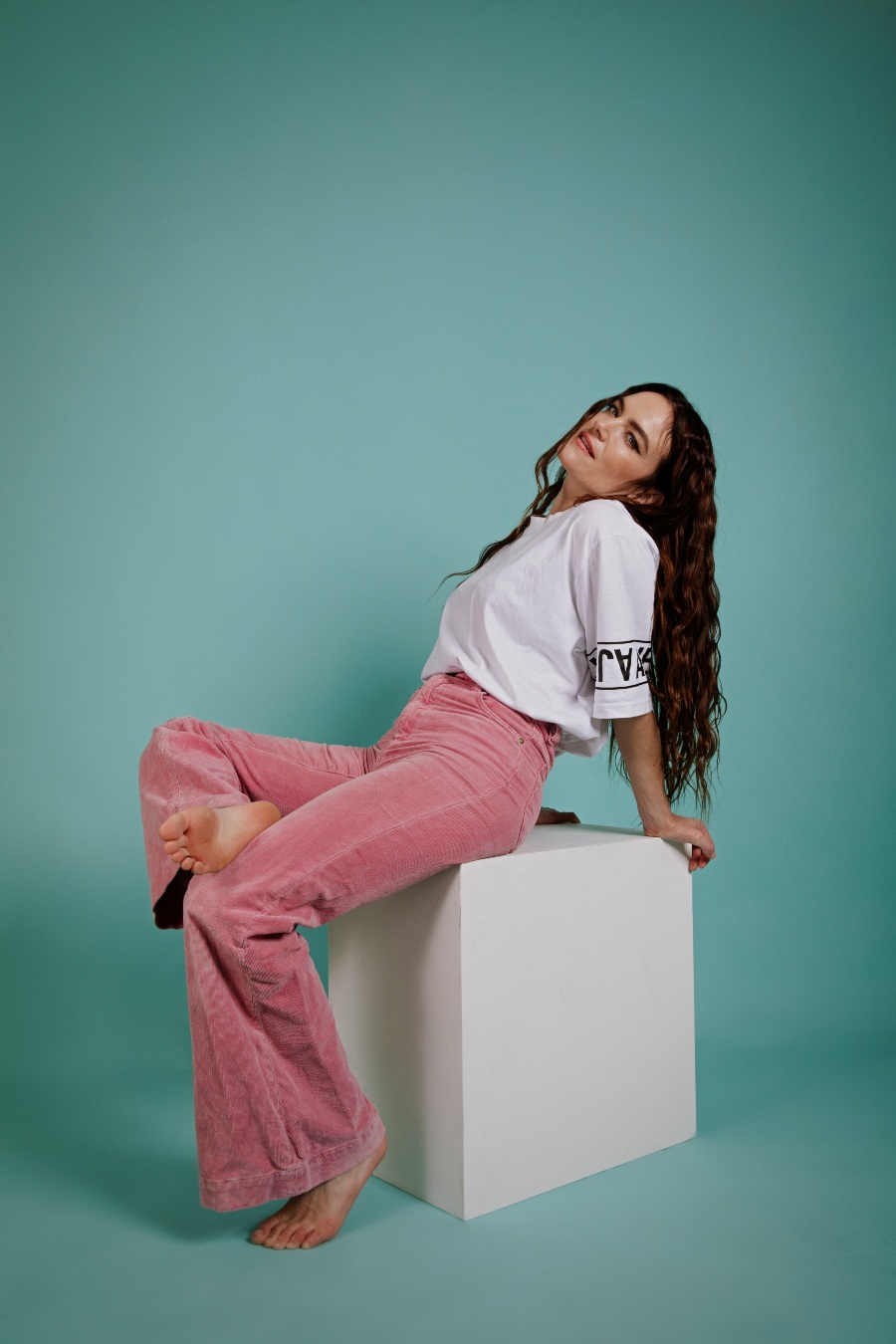
JULIA: I love recording my own vocals. I think partially because I don’t love wasting other people’s time, so I found when I worked with an engineer doing my vocals – and when I say engineered my vocals, some songs I did all of them. Other songs, I like doing the lead take with others in the room, so it’s more like a performance, like with Thomas or with Annie. I like having them hear me sing the story – I think that’s really important when you sing a lead vocal because somehow, when someone else is there, there’s a need to tell them what the story is. By yourself, you can be more… for me, I’m a lot more focused on the details of how it sounds and the texture of the voice, and the harmony, and how it sits. So I did a lot of backing vocal production on my own, which I use my voice a lot as an instrument, so instead of using strings, I’ll sing the parts and put them through plug-ins to make them sound a certain way. So there’s a lot of that that happens on the record – really textural stuff. So for me, doing stuff like that with an engineer is so painful. It’s like I record a vocal, and I go, ‘Can you please double that, put…’ and it’s like… ‘No, no, no. The second take from that… go back to the first take!’ And it’s… I remember years ago, feeling so frustrated doing that, and I felt so annoying to the engineers. So I just said, ‘Can you show me how to use the thing, and I’ll record myself?’ And once I learnt how to do it, I was just like, ‘I’m always going to do the backing vocals like this.’
HAPPY: That’s awesome. You can fully control your vocal sounds now. It’s like you don’t need to rely on someone else…
JULIA: Yeah, it’s amazing. I really see the value in both though. I think it’s really nice to push yourself to do a performance take with people there, because something definitely changes when you’re by yourself than with other people.
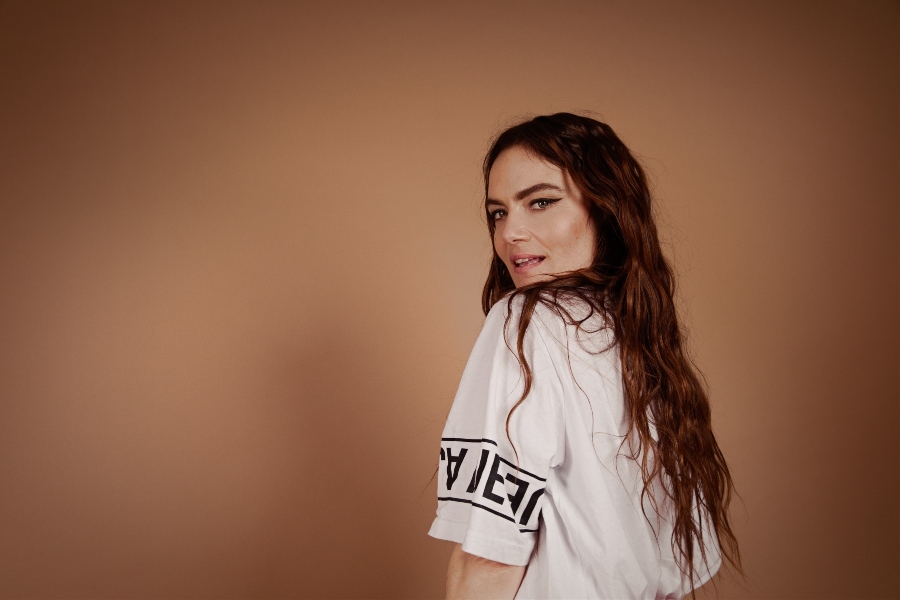
HAPPY: Yeah, interesting. Also, on this record, you use your vocals, I think, in such a breadth of different ways. Like on the opening track, you kind of do that Talking Heads, rhythmic, off-kilter thing, which is really cool. And sometimes it’s like whispery… So that was another huge highlight for me, listening to it…
JULIA: Oh, thank you.
HAPPY: The vocal dexterity.
JULIA: Yeah, there’s lots of different choices I made, and I liked using a bit more spoken word through the record, like Easy and Dance and Break. It really felt fun to be almost like spoken word poetry, and having that kind of, ‘We’re here, on the floor. You came around ‘cause I called. I get scared.’ I loved that feeling of just saying what you want to say. Really fun.
HAPPY: It was almost like… influences… Tell me if I’m wrong, but like, Lana Del Rey, and Lorde.
JULIA: Oh, that’s so nice. I mean, someone else said Lana Del Rey the other day in an interview, and I was like, ‘I’ve never heard that myself.’ You know, you don’t hear, I guess, what you sound like. You just sound like what you sound like.
HAPPY: What you are.
JULIA: To yourself. But it’s really nice when people hear something that’s… I think Lana’s amazing, and Lorde’s amazing. So like, that’s nice to be referenced or hearing that sound in the music. But yeah, I can’t hear that.
HAPPY: Yeah, no. Fair enough. I guess that’s a cool part about music is that everyone can relate it to different things.
JULIA: Yeah, yeah. Exactly.
HAPPY: Do you mind if I ask about one lyric? It was just really interesting to me, and I wanted to hear about it. In Break, ‘you know how people find themselves in a fever after all’. What were you trying to express with that?
JULIA: I think that comes from the third verse slash the bridge-y section, and it’s like, ‘You turned off your phone and I hit the wall. You know how people find themselves in a fever after all.’ And that was about the frustration of like – I think – I mean, this song, out of all the songs, was the most freestyle. Out of all the recordings, that was done with Thomas – like I wrote it as I… what you’re hearing is me writing the song. So I didn’t write the song and then sing it. I just wrote it in the moment, and we kept all the vocals from the writing. Does that make sense?
HAPPY: So you were coming up with it on the spot?
JULIA: Yeah. And I got it into a proper microphone in the studio because I remember hearing the track, and I was like, ‘I know what I wanna say, and record me.’ So we looped the song for twenty minutes, and I was just like, ‘So I left and started dancing under the streetlight, and you saw me, and I saw that you saw me. And you know how your friend when he gets in a…’ And all these memories started coming out, and I was doing that, and we just did it for twenty minutes. And Thomas… I remember going, ‘Darling, darling, I feel like I might break. Darling, darling, you take my breath away. And I’m standing in your room, and I keep feeling like I might drown. You ask me for more and more and more, and I left, and I started dancing under the streetlight, and you saw me…’ And I was saying other stuff as well, so for all of the twenty minutes, there’s just all of this spoken word stuff. And I got to that bit, and I did the ‘You turned off your phone’, and I guess I was remembering a night where someone had purposely turned off their phone so I couldn’t get in touch with them. ‘And I hit the wall, and you know know how people find themselves in a fever’, that feeling where everything’s out of control and there’s nothing you can do, and when you’re in a fever, and it’s like – particularly for me, I think, I have flashes or rage, you know, where I can’t control a situation of I feel helpless. I am overwhelmed by this fuse that is lit, of like ‘why do people do this to each other? Why?’ So that was kind of the reference to that lyric.
HAPPY: Awesome.
JULIA: At the end of doing it, I think I said something really stupid. Thomas laughed, and I laughed, and we were like… I was like, ‘That was really fun.’ And he was like, ‘I think that’s the song.’ And so we went back through all the lyrics, and found all the moments that made sense and felt like it worked. And then I said, ‘That darling bit. I think I could make that the chorus.’
HAPPY: The hook, yeah.
JULIA: And so, we lay in my vocals over the top of it, and that was the song.
HAPPY: That’s awesome, I love that. That would’ve been so much fun to record. Just off the top, and then listening back and being like, ‘Oh, that’s cool!’
JULIA: Yeah, yeah. It’s a really nice way to write. It’s also about trusting yourself. I feel like I’m at the point where I’ve been writing songs for so long that I have that faith in myself that I’m gonna occasionally – just if I say things – that they’re gonna come out in a great way.
HAPPY: Yeah, yeah. And I guess one final thing that I wanted to touch on, which you brought up earlier, is obviously the collaboration with Annie Clark, aka. St. Vincent, for our readers. How did this dream team come to be?
JULIA: Annie and I met years ago in an airport in Helsinki. We were both on tour through Europe, and we’d had toured for years with this incredible drummer, Matt Johnson. And he had joined St. Vincent’s band whilst Angus and I were working on another record. So Matt was working with Annie, and he was walking through the airport with her, and I called out to him, ‘Oh my God!’ Like one of those moments, and ran over, and gave him a hug. And he said, ‘Annie, this is Julia. Julia, this is Annie.’ And then he said, ‘You should be friends.’ So she said, ‘What’s your number?’ She, you know, very matter of factly took my phone number, and she sent me a text, and it said, ‘Friends’. And that was the first moment…
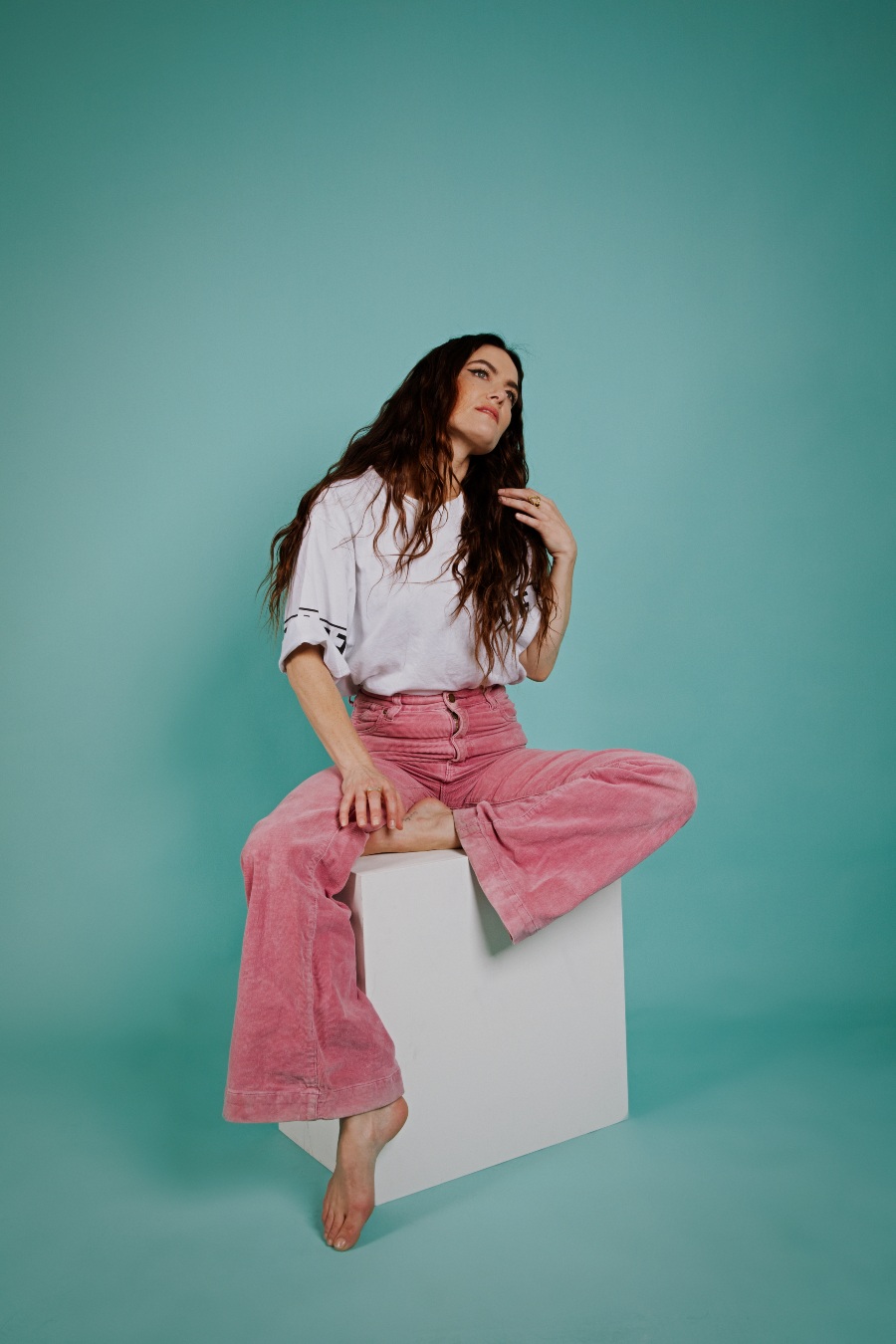
HAPPY: Aww, that’s a sweet moment.
JULIA: Yeah, that was my first moment with Annie. Our meet, cute. And then we went on to see each other around the tracks, at festivals and stuff. I think Laneway, we saw each other in Singapore, and… I was swimming in the pool, and I saw again this gorgeous woman, you know, reading the newspaper, and eating something really beautiful.
HAPPY: Boujee.
JULIA: Boujee. And I just swam over to her – ‘Annie!’ And we had a good chat about life and touring, and then I saw her again in New York when Thomas and her did Mass Education, the piano version of it. So I was there with her again then, whilst they were making that. Got to know her a bit better then. But then, it was when Thomas said, ‘We should get Annie in to produce this because we’re not going to be able to finish it’ that I really got to know her. She came in, she really turned the record into what it is now, and with Thomas, me, and her together, it was like this little gang… we just love each other. Then, I was just fortunate to have a few months in Laurel Canyon where her studio is, just her and I, and Thomas was very happy for us because he said, ‘I think the two of you together, it’ll be really nice for you to have that time to get to know each other.’ And that’s, I guess, when I really fell in love with her. She’s just such a warm person, very hardworking, and very smart, and really pushed me in a great way. Like she was always saying to me, ‘You can go deeper. Where’s the story? Sing from that place.’ And that’s why I said before… I don’t think it was… I think it was really important I sang a lot of the lead vocals in that way, because Annie would stop me, and go, ‘Remember what the story is. Sing it again.’ And it was more about, not if it sounded good or I was singing in tune, but about ‘Sing the story. Make it count.’ And that thing about making things count and making moments count in life was really important as well. Like, Sixty Summers is about living the sixty summers that you have on the planet. Or forty, or twenty, or a hundred. Living those summers in the way you really want to be, and being authentic and honest and truthful about who you are and your experience. So that was really wonderful. Annie’s like… she’s a force.
HAPPY: Yeah, that’s amazing. That’s so cool. I’ll leave you with a fun sort of question…
JULIA: Sure.
HAPPY: At the end. A lot of producers kind of have these habits or rituals that they do in the studio. Did St. Vincent have anything cool like that? I guess you brought up that she always wanted to dig deeper. Did she have any other kind of fun tendencies?
JULIA: Mmmm, I have nothing that was repetitive. I mean, I guess, you know, we all… yeah. I can’t really think of something off the top of my head that we all did regularly. Every day was different. Yeah, I’m sorry. I wish I could tell you something that…
HAPPY: That’s all good.
JULIA: Even Thomas, I’m just thinking, are there rituals that we have, or that we do? I guess, Thomas and I have a bit of a ritual. We give ourselves rewards when we get a song finished. We kind of go, ‘We’re pretty amazing, we finished a song.’ Then we let ourselves watch a movie or a TV show. We got obsessed with Veep and The Thick of It.
HAPPY: I’ll have to look him up.
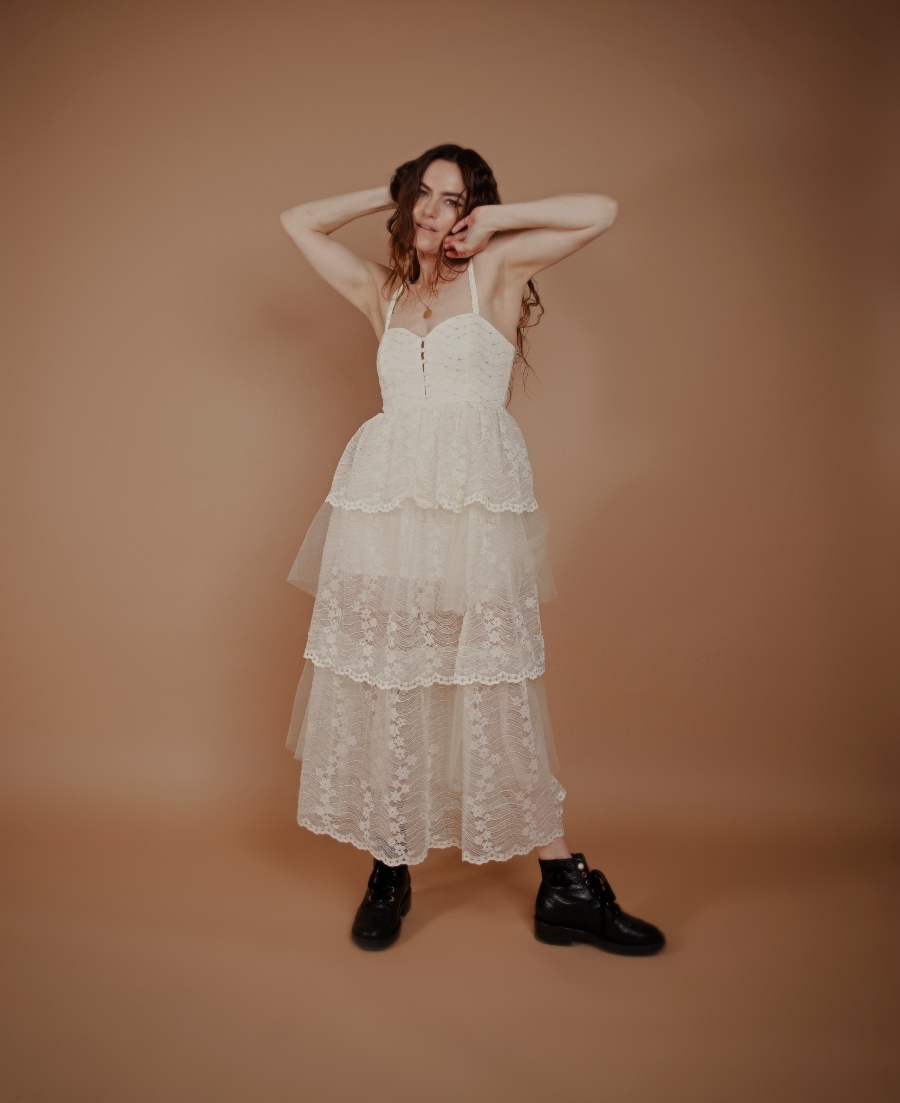
JULIA: It’s like political satire, but it’s so dark and funny and wonderful. I like the Thick of It, but we’d watch two episodes of it. Or Fleabag…
HAPPY: I love Fleabag.
JULIA: Yeah, so we watched Fleabag, Veep, The Thick of It, Party Down, so we had our go-to shows, and we’d let ourselves watch a few episodes, and then be like, ‘Right, back to work.’ So that was definitely our thing, was watching TV.
HAPPY: Awesome. Thanks so much for your time, Julia.
JULIA: Pleasure.
HAPPY: It’s been great to get to know the album, and you.
JULIA: Thank you. Nice talking with you too.
Sixty Summers by Julia Stone is out now!
Interview by Manning Patston
Photos by Four Minutes To Midnight

